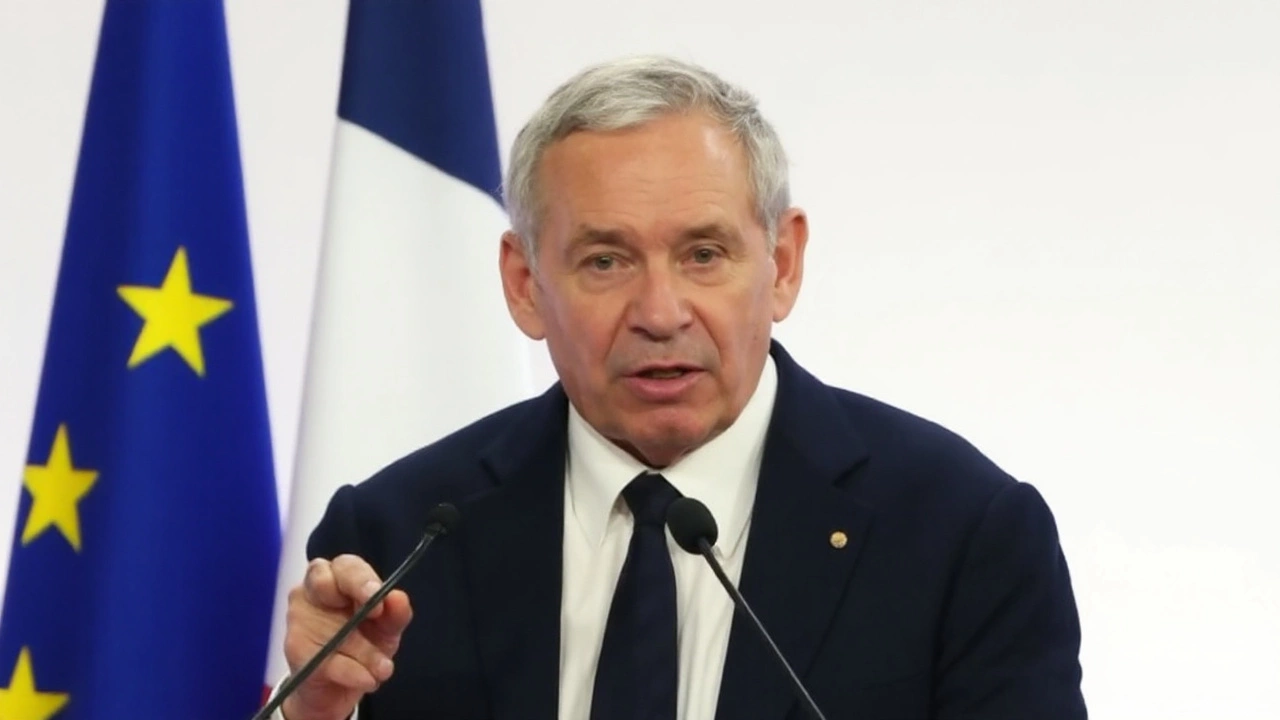France’s government falls as Bayrou loses confidence vote
On the first Monday of La Rentrée—when schools reopen and offices fill up—France woke up to a political vacuum. Prime Minister François Bayrou lost a confidence vote in the National Assembly, toppling his government and throwing policy plans into limbo. The defeat immediately paused his attempt to push through spending cuts and tax increases aimed at shrinking the deficit. President Emmanuel Macron now has to pick a replacement who can survive in a parliament that has chewed through several prime ministers in short order.
Bayrou didn’t stumble into the vote. He asked for it. Calling a confidence vote can be a high-risk way to impose discipline, rally wavering lawmakers, and secure a mandate for tough reforms. This time the gamble failed. Opposition parties closed ranks, while parts of the center bloc stayed cautious, wary of backing a package that mixed unpopular cuts with tax hikes. The arithmetic in today’s National Assembly is unforgiving; a few defections can sink a government.
The loss fits a pattern. Less than a year ago, Bayrou’s predecessor, Michel Barnier, was forced out in a bruising budget showdown. The faces on the front bench keep changing, but the underlying problem hasn’t: a fragmented lower house where no coalition can count on a stable majority. Governing in that setup means trying to stitch together votes bill by bill, and the thread keeps snapping.
So what happens next? Under France’s Constitution, the government resigns, and the president appoints a new prime minister. Until that handoff is complete, the outgoing team runs day-to-day affairs in a caretaker role. The Elysée is now weighing options. Macron needs someone who can negotiate across party lines, keep a lid on tensions, and move a budget through a chamber that’s quick to punish missteps.
The policy stakes are real. Bayrou pitched his program as a reset: bring the deficit down through a mix of spending restraint and new revenue, signal credibility to markets and Brussels, and clear space for longer-term investments. The broad contours were familiar—tighten operating costs, revisit tax expenditures, pare back some subsidies—paired with targeted measures to lift growth. Unions warned the cuts would hit public services and household budgets. Business groups asked for a stable roadmap. Neither side got clarity before the vote killed the momentum.
Context matters here. Since losing its absolute majority, Macron’s camp has had to bargain with rivals to pass anything complicated. The main blocs—the center, the left alliance, and the far right—agree on very little, especially on fiscal policy. Each time the government reaches for harder reforms, it crashes into that reality. That’s why budget season has become a political minefield.
This drop also lands at a sensitive moment in Europe. The European Union has revived tighter fiscal rules and is pushing capitals to lay out credible paths to rein in deficits. Watchdogs in Brussels won’t dictate France’s exact choices, but they will look for numbers that add up. The credibility question—can Paris approve and stick to a plan?—is now back at the top of the inbox.
Meanwhile, the calendar doesn’t stop. Ministries are preparing next year’s spending plans, mayors are waiting on transfers to run schools and local services, and hospitals need clarity on staffing and funding. Without a functioning government with a mandate, civil servants can manage routine tasks, but big decisions slow. That lag is exactly what spooks investors and local officials alike.
The symbolism of the timing isn’t lost on anyone. La Rentrée usually brings fresh agendas and a flurry of reforms. Instead, the country gets a reset on the reset. This is also the season when unions often test the waters with protests, and opposition parties try to set the tone for the year. A political vacuum gives them space to define the narrative before a new prime minister even steps in.
Bayrou’s fall will also reshape the center. He bet that forcing a confidence vote would project strength, flush out support, and give him a freer hand to govern. He misread the mood. The result weakens not just his position but the broader reform push he championed. Whether he remains in a caretaker role for long or exits quickly, the agenda he laid out is now up for renegotiation.
Across the Rhine and in Brussels, the worry isn’t drama—it’s drift. France is a core player in Europe’s energy transition, industrial policy, and support for Ukraine. Any prolonged paralysis complicates EU negotiations on budgets, competitiveness, and defense. European partners can live with disagreements; what they can’t plan around is uncertainty about who in Paris can deliver a vote.
Financial markets tend to dislike headlines like these. Investors don’t expect fireworks every time a government falls in a parliamentary system, but repeated stumbles raise questions about execution risk. If the next budget looks shaky, borrowing costs can creep up. That in turn makes the deficit problem harder to solve. It’s a loop the next prime minister will want to break early.
What comes next, and the choices facing Macron
Macron’s decision tree is narrow but clear. He needs someone who can cross the aisle, communicate plainly, and pick a small set of winnable fights. The opposition knows it can’t easily govern either, so there’s room for deals—if the new prime minister keeps proposals compact and pragmatic.
- The consensus-builder: A figure known for compromise who can strike limited agreements on a trimmed-down budget and a few targeted reforms. The upside is stability; the downside is modest ambition.
- The technocratic caretaker: A low-profile pick to run the basics, stabilize markets, and buy time. This approach lowers the political temperature but offers little long-term direction.
- The high-stakes reset: Force a broader showdown—potentially even a dissolution of the Assembly to seek a new mandate. It’s bold, but it risks returning to the same arithmetic or worse.
- The policy lite package: Focus on revenue-neutral measures, administrative efficiencies, and growth-friendly tweaks that offend fewer camps. It won’t fix the deficit overnight but might pass.
Whichever route he chooses, the budget remains the immediate test. France typically needs a finance bill through parliament by year’s end to keep services funded and avoid emergency stopgaps. That means the next prime minister must move quickly: consult parties, tweak numbers, and sequence the hardest measures later. Expect a push for clarity within weeks, not months.
Inside the Assembly, the blocs will set their price. The left wants more protection for public services and lower-income households. The far right asks for relief on purchasing power and hard lines on certain taxes. The center-right favors spending restraint and business-friendly measures. The only way through is to split the package into pieces that different groups can vote for without swallowing the whole program.
There’s also the question of method. Recent governments leaned on constitutional tools to shortcut gridlock, which burned political capital and fueled backlash. A new team may try a different tone—more negotiation upfront, fewer procedural heavy lifts—to rebuild trust, even if it slows the timetable.
Outside Paris, the stakes show up in small ways. School principals need to plan hiring. Hospital administrators are juggling overtime and equipment purchases. Local transit agencies are negotiating energy bills. These aren’t abstract budget lines; they are choices about how people live and work. When national politics stalls, those choices get pushed off—then pile up.
For Bayrou, the path ahead is uncertain. He entered office promising steadiness and fiscal realism. Leaving after a failed confidence vote makes him another short chapter in a longer story: governing without a stable majority. His allies will argue the reforms were necessary; his critics will say the strategy was tone-deaf. Both can be right. What matters now is whether the next team learns from the misread.
One phrase will hang over the Elysée as the search begins: France political crisis. It’s a blunt label, but it captures the cycle that Paris needs to break—frequent leadership changes, fragile coalitions, and budgets that become traps. The fix won’t come from a clever new face alone. It will come from a smaller, clearer agenda that can survive the first hard vote—and the second.
For Europe’s second-largest economy, that’s not a nice-to-have. It’s the baseline for credibility at home and abroad. The next prime minister won’t have much time to prove it.

